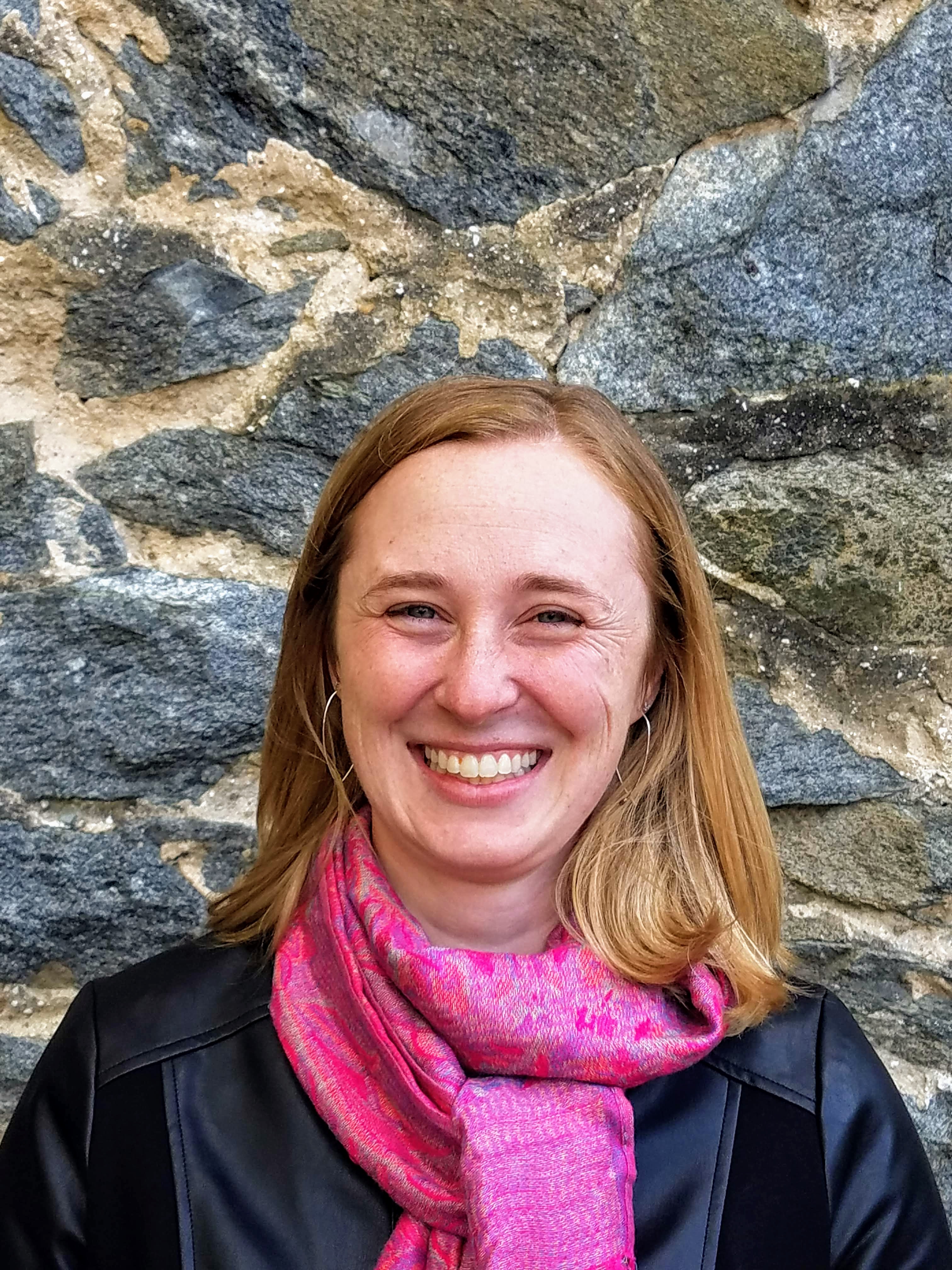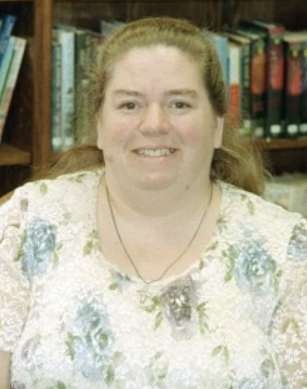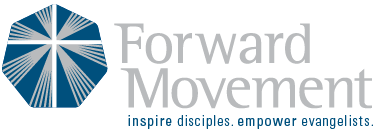Fourth Sunday in Lent
Begin your devotion time by praying this prayer: Gracious Father, whose blessed Son Jesus Christ came down from heaven to be the true bread which gives life to the world: Evermore give us this bread, that he may live in us, and we in him; who lives and reigns with you and the Holy Spirit, one God, now and for ever. Amen. (Collects: Contemporary, Book of Common Prayer, p. 219)
Adult and Small Child
Hannah Graham

For nearly 15 years, Hannah has served Episcopal parish communities in in a variety of Christian Formation roles. As a gifted Godly Play storyteller and youth mentor, Hannah utilizes her knowledge of child and adolescent faith development not only in the classroom, but also in executing big picture planning to enhance the shaping of Christian community. Hannah has led the Education for Ministry Program as a trained mentor for 4 years, and regularly contributes to Diocesan events, camps, retreats, and committee work. She is recognized for her innovated use of social media to integrate liturgical seasons, parish programs, music, faith at home activities and outreach. In addition to the spiritual formation of St. Andrew's Episcopal Church in Glenwood, Hannah devotes herself to growing in faith as a beloved child of God, wife and mother of three boys, ages 10 months-5 years old.
Read: 1 Samuel 16:10-13
Reflect: God told Samuel to find the next king of Israel. He went to Jesse’s house knowing that the future king lived there. Jesse was sure that it would be one of his strong older sons. But God had other plans. David was the youngest son who was given the dirtiest job (tending sheep). But it was David that God chose to be the next king. David was quiet and gentle with a heart full of joy and love. David became a great leader and a mighty king. God does not always choose the strongest or oldest or fastest person to be the leader. More often, a great leader is full of kindness, understanding and joy.
Respond: Sing this song with your family: If You’re a Leader and You Know It (Sung in the tune of “If You’re Happy and You Know It” / Lyrics by Terri Bose). Actions to accompany the song are located in the parenthesis.
If you’re a leader and you know it pump your fist! (Do two fist pumps)
If you’re a leader and you know it pump your fist! (Do two fist pumps)
If you’re a leader and you know it then your actions really show it!
If you’re a leader and you know it pump your fist! (Do two fist pumps)
If you’re strong and you know it flex your arms! (flex, flex)
If you’re strong and you know it flex your arms! (flex, flex)
If you’re strong and you know it then your actions really show it!
If you’re strong and you know it flex your arms! (flex, flex) Tap your head! (Do two head taps) Pump your fist! (Do two fist pumps)
-Hannah Graham
Adult and Elementary
Patrick Kangrga

Originally from Arkansas, Patrick Christopher Kangrga began in ministry by serving two years as a member of the Episcopal Service Corps in Maryland and in Massachusetts. His lay-professional journey has included roles at the parish and diocesan levels in New York, New Jersey and California. Currently he serves as Director of Youth Ministries at St. James' Episcopal Church in Jackson, Mississippi. He has primarily served youth with a short stint into ministry with children.
Read: Ephesians 5:8-14
Reflect: Do you have a flashlight? If you can, grab it, turn it on, and cover it with your hand. Can you cover all the light? Do you need something else to cover it, like a piece of paper? Whatever you do, as long as the flashlight is turned on and working, the light is still going to be there. You might completely cover it so it looks like it has disappeared and is never coming back. You might only cover a bit of it and you can see beams of light shining out of the spaces in between your fingers or light coming through the thin piece of paper. Even at night, the sun’s light has not gone out. It is going around the Earth and will return to you in the morning.
Often times when we talk about God or Jesus or the Holy Spirit, they are described as light or things that bring light like fire. And we are also told that God and God’s love is in us, and that we are to be like Jesus. And we are also told that the Holy Spirit lives and moves in us. So amazingly…we are light! We are bringers of light! When you look at people do you see their light? When you look in the mirror do you see the light in you? It is there whether covered up or thinly shining through or bright as the sun. You are light. You are good. And that light and goodness will always be in you.
Respond: Find instructions (online or in a craft book) for making a Chinese paper lantern. Use the instructions to make a lantern. On the slits of the lantern, write ways that you can be bringers of light to other people (for example smile at people more.)
- Patrick Kangrga
How does the love of Jesus dwell within you? How can you share that love with others this week?
Adult and Youth Kate Huston serves as the Director of Young and Young Adults and the Program Director for the IONA School of Formation in the Diocese of Oklahoma. Kate has worked in formation ministry for over 15 years and currently serves on the Forma Council. Before moving into full-time formation ministry, Kate had a faculty position in Political Science and continues to teach courses as an adjunct professor. Kate has a daughter, Brigid (6), and they love to read, watch the Great British Baking Show, and walk their 90-pound furball, Sully the Great Pyrenees.Kate Huston

Read: John 9:1-41
Reflect: Have you ever had to explain something multiple times to someone who wasn’t listening? That feeling of frustration must have been what the blind man who washed in the pool of Siloam felt as he explained again and again to his neighbors and the Pharisees. The man and his parents, all who were experiencing joy at his new sight, encountered disbelief and even hostility from those who did not believe something miraculous had happened. The Pharisees and others believed that the man was blind because his parents had sinned and the Pharisees were incredulous that the young man could be healed. The Pharisees were unwilling to trust in something they couldn’t understand and refused to listen or accept the story of the young man. Jesus calls out the Pharisees for being blind to the truth and closed to the possibility that faith can make you well.
Jesus gave sight to the blind man in order that he might see and have faith but also reminds us that just because we have sight doesn’t mean we can actually see. Rather, it is our trusting in what we cannot see or understand that helps us to see the world more fully. When we allow ourselves to see the world through the lens of Christ, we allow ourselves to experience the same joy as the young man and his parents.
Respond: Grab a journal and write down your answers to the following questions: Have you ever experienced the frustration that the blind man and his parents felt – trying to explain something and not being heard or understood? What did you do to get your message across? Are there places in your life where you are like the Pharisees? How did you respond to others? Where in your life do you share joy with others?
- Kate Huston
Adult and Adults Peggy Hoppes is a writer, artist, photographer and crafter; her creativity reflects her faith. She is married with two grown children. She began writing “A WORD FOR TODAY,” a devotional, in August 1999 which can be found at www.awordfortoday.org. Peggy teaches a Bible class at her church and has led workshops. She has published several books. Peggy shares her gifts to build up the church, to help Christians grow as disciples with living faith and to be a witness to the Gospel of Jesus Christ in the world.Peggy Hoppes

Read: John 9:25
Reflect: Charles Wesley desperately wanted to have the type of faith he saw manifested in the lives of the Moravians. He wanted to believe, but no matter how hard he tried, he could not find peace in God’s promises. He was suffering from a grave illness and he was afraid that he would die without ever knowing God’s forgiveness and peace. Many visited and tried to help. He heard scripture, sang hymns, listened to readings from people like Martin Luther, but never seemed able to grasp the forgiveness that was so freely given for him.
After one woman spoke words of healing and peace, Charles opened his Bible and read several passages that gave him peace. His eyes were opened and he could see. One of those verses was from Psalm 40, “He put a new song in my mouth.” It was after this experience that Charles really began to write the hymns for which he is most famous. Though Charles was also a preacher, he spoke best through the poetry of hymnody, using music to reveal his thoughts, prayers, hopes and understanding about God. The love for the Christ who lived in him was revealed through his songs.
Respond: Charles Wesley wrote thousands of hymns. Which ones are your favorites? Using an online hymn site or a hymnal, sing or read through the words of one of his hymns, such as “Love Divine, All Love’s Excelling,” “O for a Thousand Tongues to Sing,” or “Christ the Lord is Risen Today.” How do these hymns connect you to Jesus? What do they say to you? Does music help you experience the indwelling presence of Christ?
- Peggy Hoppes
Download a printable copy of this week's devotions HERE.
Tags: Lectionary Based Readings & Reflections / Latest Posts

